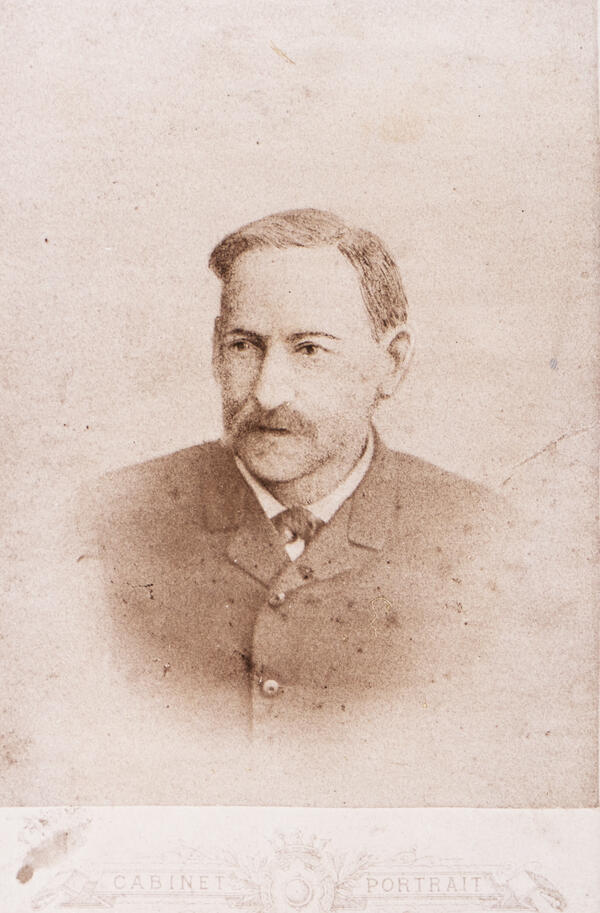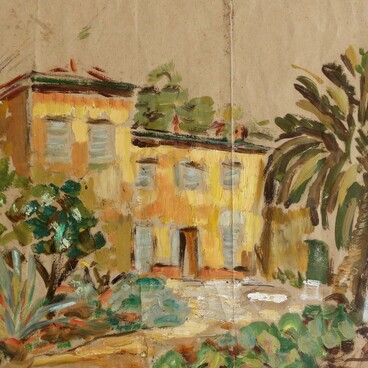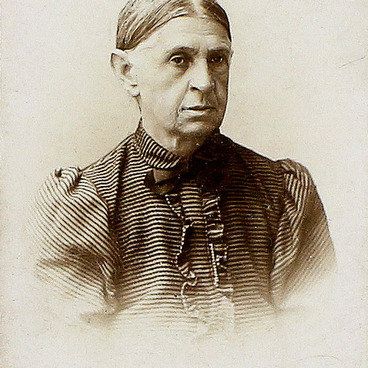Ivan Bunin recalled his father Aleksei Nikolaevich this way: ‘Father was an unusually strong and healthy physically man until the very end of his long life and was almost as healthy and cheerful in spirit. Despondency took possession of him in the most difficult situations for a minute, anger – he was very hot-tempered – even less’. And in the lyric-autobiographical novel ‘The Life of Arsenev’ he wrote: ‘He was a man of amazing talent of all his nature, a lively heart and a quick mind, who understood everything, grasped everything from one hint, who combined in himself a rare spiritual directness and spiritual intimacy, the outward simplicity of character and his inner complexity, the sober vigilance of the eye and the melodious romanticism of the heart’.
Aleksei Bunin was a typical representative of the small landed nobility. He studied at the Oryol men’s gymnasium, but never graduated from it, served in the office of the Oryol noble assembly and had the rank of collegiate registrar. In 1853-1856, Bunin-elder went to the Crimean War, and took part in the battle of Sevastopol. He was familiar with young Lev Tolstoi.
As Vera Muromtseva, the wife of Ivan Bunin, recalled, Aleksei Nikolaevich played the guitar perfectly and sang old songs: “… he sang musically, raising his eyebrows, often with a sad look, and made a great impression… Most of all, Vania loved a song in two voices, which his father sang alone or with someone… Here”s how he wrote about it himself: “My father sang to a guitar an old song, sweet in its romantic naivety, sometimes drawn out, reproachfully, sometimes with sad boldness, changing faces according to the two who participated in the song, one asked, the other answered: Why are you silent and sitting alone… ” The writer dedicated the poem “At Khutor” to the talent of his father:
The candles burned out, the winter evening is long…
You sat down on the couch, raised a quiet look –
And the guitar sounds with sad prowess
The song is a carefree, old song in tune.
“Where did you set, golden happiness?
Who scattered you across the clear fields?
The sun will not rise above the steppe from sunset,
There is no way back to irrevocable days!”
The candles burned out, the winter evening is long…
You raised your eyebrows, the quiet look is sad…
I am not your judge for the sins of the past!
You can’t turn back the life you lived!
Bunin I.A., 1897
Aleksei Bunin was a typical representative of the small landed nobility. He studied at the Oryol men’s gymnasium, but never graduated from it, served in the office of the Oryol noble assembly and had the rank of collegiate registrar. In 1853-1856, Bunin-elder went to the Crimean War, and took part in the battle of Sevastopol. He was familiar with young Lev Tolstoi.
As Vera Muromtseva, the wife of Ivan Bunin, recalled, Aleksei Nikolaevich played the guitar perfectly and sang old songs: “… he sang musically, raising his eyebrows, often with a sad look, and made a great impression… Most of all, Vania loved a song in two voices, which his father sang alone or with someone… Here”s how he wrote about it himself: “My father sang to a guitar an old song, sweet in its romantic naivety, sometimes drawn out, reproachfully, sometimes with sad boldness, changing faces according to the two who participated in the song, one asked, the other answered: Why are you silent and sitting alone… ” The writer dedicated the poem “At Khutor” to the talent of his father:
The candles burned out, the winter evening is long…
You sat down on the couch, raised a quiet look –
And the guitar sounds with sad prowess
The song is a carefree, old song in tune.
“Where did you set, golden happiness?
Who scattered you across the clear fields?
The sun will not rise above the steppe from sunset,
There is no way back to irrevocable days!”
The candles burned out, the winter evening is long…
You raised your eyebrows, the quiet look is sad…
I am not your judge for the sins of the past!
You can’t turn back the life you lived!
Bunin I.A., 1897



